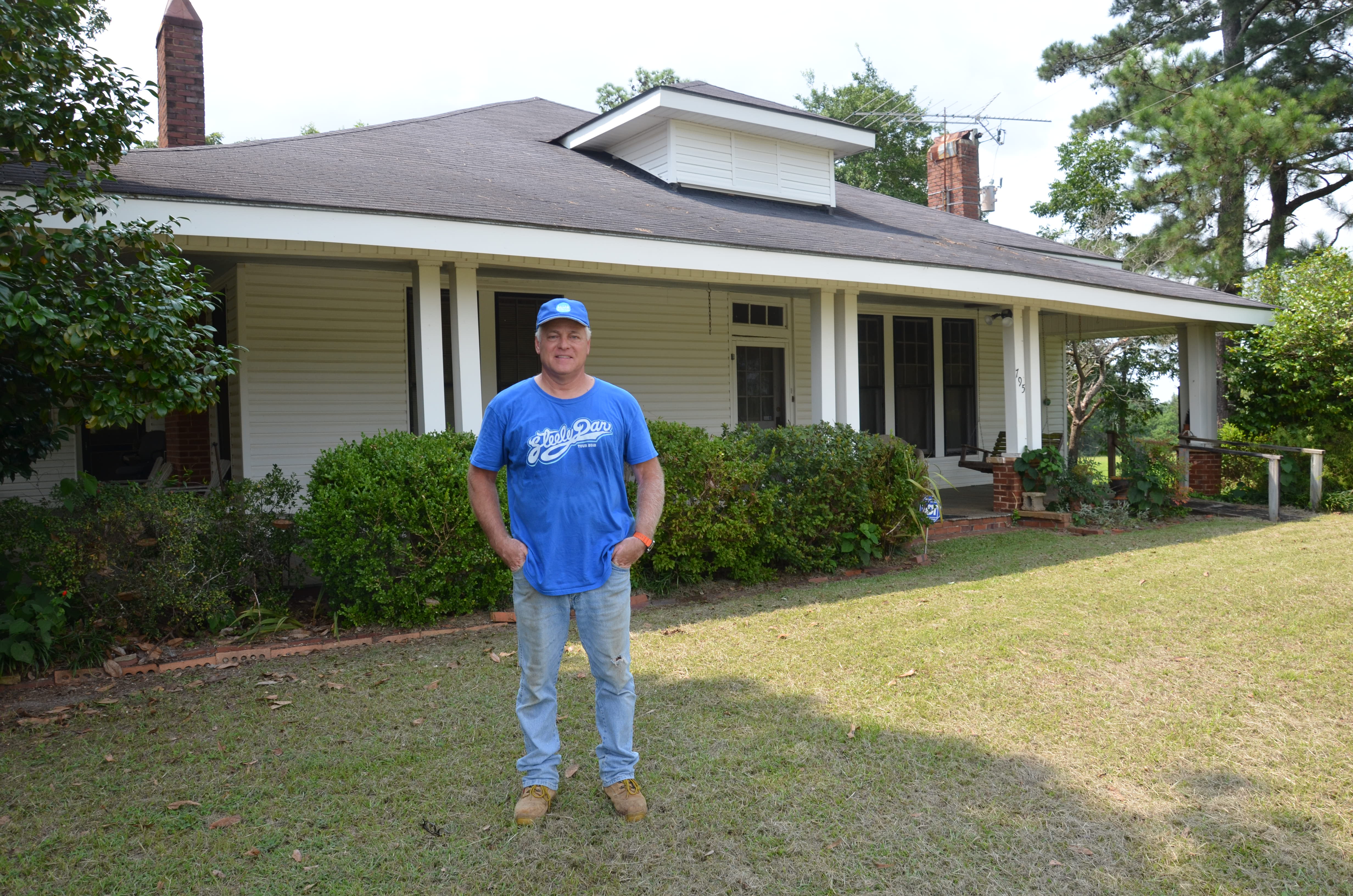HISTORY AT HOME: Mills restoring family homestead in Goshen
Published 11:47 pm Friday, August 24, 2018

- Keith Mills, originally from Goshen, poses in front of the home built by his grandfather, William Thomas Mills in 1925. Keith is overseeing dismantling the barn and restoration of the house to create a gathering place for him, his siblings and their children.
In 2019, Alabama will officially be 200 years old.
However, the celebration has been billed as a three-year event by the Alabama Bicentennial Commission with the focus on Alabama’s places in 2017, Alabama’s people in 2018 and Alabama’s stories in 2019.
The Pike County Chamber’s Farm City Committee is encouraging the identification of the county’s farms that qualify as Century and Heritage Farms so they may be honored and recognized during the Bicentennial year.
According to Randy Hale, committee chair, Pike County has more farms that have been so distinguished than any other county in the state. And, there are more farms that qualify.
A Century Farm is one that has been in the same family continuously for at least 100 years and currently has some agricultural activities on the farm. A Heritage Farm must also include one or more structures at least 40 years old.
Kathy Sauer, Pike County Chamber of Commerce president, said once identified, there is an application process and an acceptance process.
“We have farms here in Pike County that could qualify and, for them to be recognized and honored during our Bicentennial year, would be very special,” Sauer said. “Of course we would love to have a farm to qualify with 200 years. What could be more special than that?”
And, there is a possibility that Pike County could have a Century Farm to qualify with 200 years during Alabama’s Bicentennial celebration.
The William Wingard farm in the Petrey community is believed to date back to 1819, however, verified records only date back to 1823.
“William Wingard, my fifth great-grandfather, came to Pike County from South Carolina in 1823 and purchased this property,” said Keith Mills, who grew up on “the farm” but now makes his home in Mobile. “William Wingard brought a slave, Cuff, and his wife with him from South Carolina. He later freed Cuff and gave him 80 acres of land.”
Mills said Wingard took advantage of land grant opportunities to amass a large tract of land that totaled 10,000 family-owned acres.
Whether Wingard planned for the property to be handed down through the generations, no one is quite sure. But Mills said that was probably his desire.
Much of a man’s worth was determined by the land that he owned. If so, William Wingard must have been highly regarded.
The first house to be occupied on the William Wingard property was a log structure and those who occupied it could not have imagined the house that would be built on the property 100 years later by William Thomas Mills.
Around 1924, Mill’s grandfather “Pop” Mills built the house that is now the gathering place for the extended Wingard family. And, it was not just a house. It was a showplace. So much so that the Auburn Extension Agency came and photographed the amazingly grand home.
“The house had indoor plumbing and electricity that was generated through a junked Model-T,” Mills said. “The engine from the Model-T was removed and used to generate electricity for the house.”
The house was lighted by drop cords and the electric churn remains as a conversation piece when visitors come. The gabled-roofed barn was a focus point on the farm. It housed the livestock and the farm equipment and provided shelter from storms.
Later, when the Mills’ family called the showplace house their home, Keith Mills and his friends used the barn loft as a basketball court.
“We hung lights in the barn so we could play basketball at night,” Mills said. “Houston had the Astrodome. We had the Goatdome.”
When Hurricane Opal came through in 1995, it ripped a hole in the roof of the storied barn and took out a back section.
“Water is to a building what cancer is to a body,” Mills said. “The barn had to be taken down but we are saving the wood. My children can have wood floors in their houses and I can have wood for my underground house. But, I can’t say that I didn’t cry at the loss of the old barn.”
A tornado ripped the blades off the windmill that provided water for the farm for several generations.
“We’d had losses but, for the most part, the “Wingard Community” is still the same,” Mills said. “I love this place and my brothers and sisters want to make sure that our children and grandchildren have the same love and respect for it that we do.”
Mills said he remembers when he was a young boy and felt isolated in the hinterlands of Pike County.
“Back then, living out here and in this house was like a prison,” he said. “Today, it’s like being in heaven.”




